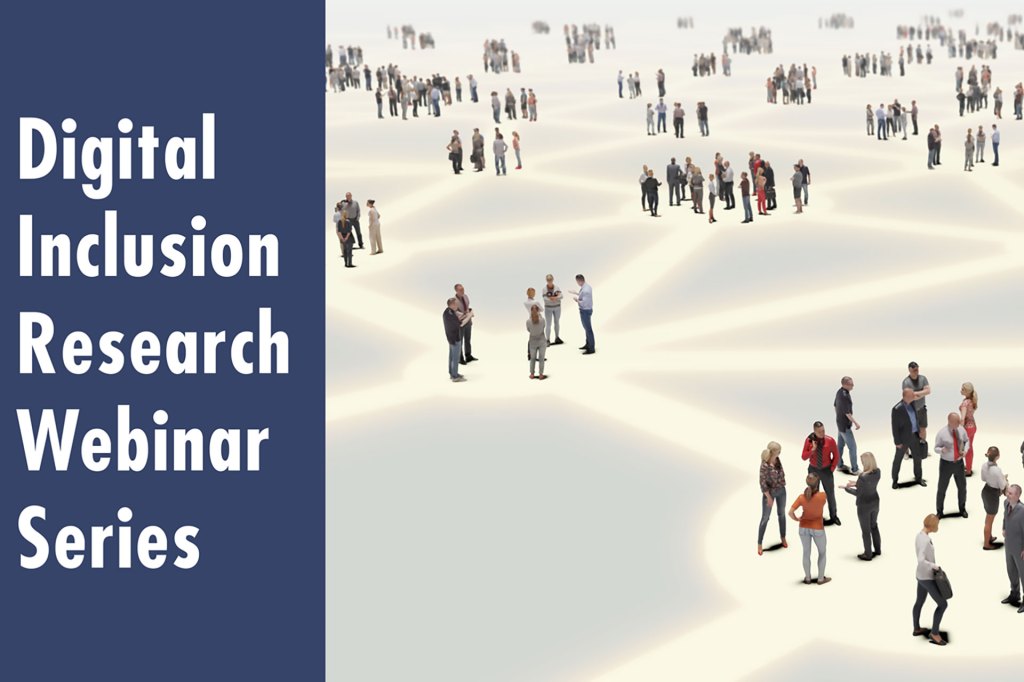
Evaluating Digital Skills: Data, Measurement Tools, and Outcomes
October 10 @ 12:00 pm – 1:30 pm CDT

Demand for digital skills in the labor market is high across occupational sectors. Research from the National Skills Coalition and Federal Reserve Bank of Atlanta found that 92 percent of jobs analyzed required digital skills, yet a third of workers do not have the digital skills needed for these roles. This digital skill gap disproportionately impacts lower-income individuals, limiting career options and opportunities for economic mobility.
This webinar highlights research on evaluating digital skill levels and the implications for workforce participation. It addresses methods for measuring digital skills and the importance of understanding varying skill levels to help close the digital skill divide.
Space is limited.
The 2024 Digital Inclusion Webinar Series
Join us during Digital Inclusion Week for a series of webinars highlighting the latest research on digital inclusion. Each webinar focuses on a timely topic, elevating policy-driven scholarship. The presentations will feature emerging methodologies, best practices and needs for future research.
Academics, researchers, policymakers, and community development practitioners are encouraged to register for one or more of the sessions:
- Following the Dollars: Measuring the Efficacy of Federal Broadband Funding (October 8, 2:00 pm – 3:30 pm CT)
- The Broadband Affordability Burden: Exploring Research and Policies for Affordable High-Speed Internet for All (October 9, 10:00 am – 11:30 am CT)
- Roundtable Discussion (October 11, 11:00 am – 12:30 pm CT)
Why this matters
Access to the internet is vital to economic inclusion. However, many Americans lack access to affordable home broadband or the skills and devices needed to use it.
Recent federal funding programs provide a singular opportunity to address these issues. This has driven an interest in relevant research on digital inclusion among policymakers and practitioners, as well as academics and researchers. The heightened attention has also revealed research gaps in some areas.
About this series
This webinar series is a follow-up to the Digital Inclusion Research Forum hosted by the Federal Reserve Banks of Atlanta, Dallas, Kansas City and Philadelphia in 2023.
The forum serves as a platform to share digital inclusion research and provide context for practitioners to understand and apply research to their work. It also highlights opportunities for new research.





